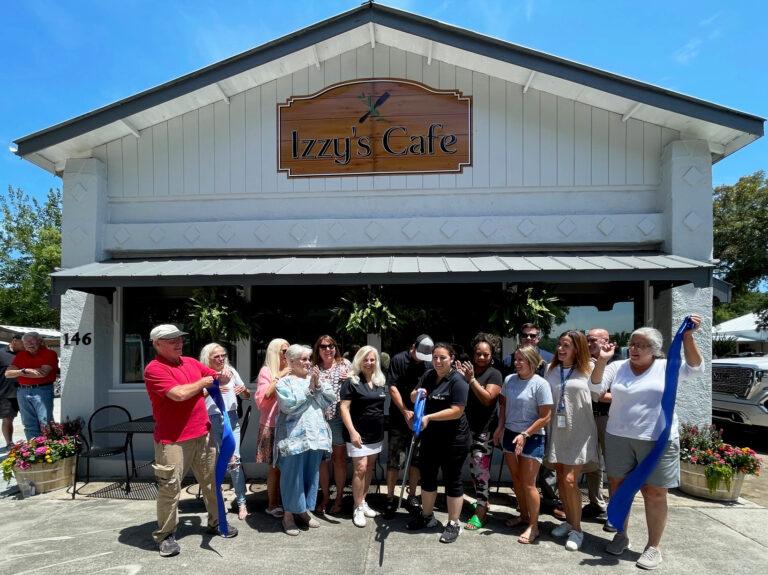Legacy Post Disclaimer
This is a #Legacy post imported from The Apalachicola Time’s previous platform. If you’re experiencing issues with this article, please email us at news@nevespublishing.com.
Senate passes voting changes along party lines
TALLAHASSEE — With Democrats likening the measure to Jim Crow-era practices aimed at keeping Black people from voting, the state Senate on Monday passed an elections package that would make it harder for Floridians to cast ballots by mail.
A single Republican — Jeff Brandes of St. Petersburg — crossed party lines to join Senate Democrats in voting against the bill, with opponents arguing that it would impose unnecessary restrictions that would have a disproportionately negative impact on Black, Hispanic and older voters.
The Florida proposal (SB 90) is among an onslaught of elections-related legislation being considered or passed by Republican-led state houses throughout the country. The GOP-backed measures are a response to former President Donald Trumps election loss to Democrat Joe Biden, as millions of people — including in Florida — opted to vote by mail amid the coronavirus pandemic.
The Senate proposal would limit supervisors use of mail-in ballot drop boxes; make it harder for voters to request mail-in ballots or change their party affiliations; and require voters to submit requests for mail-in ballots every two years. Currently, mail-in ballot requests are valid for four years.
During Mondays Senate debate, Black Democrats called the measure an attack on democracy evocative of historical barriers erected to prevent their ancestors from voting.
Since voting is a right, why would we, as a state, attempt to reduce the right of a person to exercise their right to vote and in the manner in which they decide to vote? We may not have to take a test, count bubbles or marbles or any other such nonsense, but this bill is tantamount to the same thing, Sen. Audrey Gibson, D-Jacksonville, argued.
Sen. Perry Thurston, D-Fort Lauderdale, said he and his Black colleagues scrutiny of the bill is screened through the context of Floridas sordid history of such efforts as forcing Black voters to estimate the number of jelly beans in a jar before casting ballots, along with poll taxes, literacy tests and even lynching to keep them from participating in elections.
So when we say we want to make changes to individuals right to vote, I can tell you that the people who were deprived of their right to vote for the longest time, they take that personally. This is serious business, Thurston said. And the question really becomes, why are we doing this? Why do we ever want to make it more difficult for anybody to vote? That answer should be never.
But Republicans argued the measure codifies executive orders issued by DeSantis amid the pandemic, including orders that gave supervisors of elections more time to count mail-in ballots. They also said the bill would enhance election security.
The goal for everybody is to make it as easy as possible to vote and as hard as possible to cheat, Sen. Joe Gruters, a Sarasota Republican who also serves as chairman of the Republican Party of Florida, argued. This does nothing to suppress the vote. It does nothing to restrict the vote. What were trying to do is make sure that we preserve our sacred duty and right of having every vote count.
Bill sponsor Dennis Baxley, R-Ocala, eased up on some proposed restrictions included in earlier versions of the Senate bill, which originally would have banned supervisors use of ballot drop boxes altogether. Drop boxes became a flashpoint last year when elections supervisors and DeSantis administration wrangled over where they could be located and whether they needed to be manned at all times.
Under the Senate measure, supervisors could use ballot-drop boxes during early-voting hours, if the boxes are staffed by employees of the supervisors offices at all times. The proposal would make supervisors subject to a $25,000 fine if drop boxes are available to voters after early-voting hours.
The Senate bill also includes new identification requirements for people requesting mail-in ballots, switching party affiliations or changing home addresses. The Senate plan would require voters to provide a drivers license number, state identification number or the last four digits of their Social Security number, if they do not have a Florida-issued ID cards, to make the changes or request mail-in ballots.
Senate Minority Leader Gary Farmer, D-Lighthouse Point, pointed to studies showing that low-income, Black and Hispanic voters are less likely to have government-issued identification than white, wealthier voters.
But Republicans refuted the Democrats criticism. That included saying Floridians have a number of ways to cast ballots, including in-person on Election Day, in person during early voting and through mail-in ballots.
The only excuse you have is that youre lazy if you do not vote, Sen. Travis Hutson, R-St. Augustine, said.
Voters have to plan for elections, said Sen. Jim Boyd, R-Bradenton.
Elections dont sneak up on us. We know when that election is going to be, Boyd said. Along with our right to vote, it is also our responsibility to prepare to vote.
The bill, passed by the Senate in a 23-17 vote, also includes other elections-related changes. One provision would require county canvassing boards to allow candidates and political parties to each have one person within a distance that allows them to directly observe ballots being examined for signature matching and other processes, an issue that arose in other states following last years presidential election.
With the 2021 legislatures session scheduled to end Friday, the Senate and House would have to come to agreement on a final elections bill. The House has proposed a measure (HB 7041) that includes stricter provisions for mail-in ballot signature verification.
Senate Democrats argued Monday that the proposed changes to election laws are based on the big lie that blamed Trumps loss on voting irregularities or fraud. They pointed out that DeSantis and other Republican leaders have repeatedly boasted about the smooth handling of the November election in Florida, where Trump handily defeated Biden.
Sen. Janet Cruz, D-Tampa, said the legislation continues to feed into false allegations about last years election results.
This is all about voter suppression. This is about making it harder for people, hard-working folks, to get their butts to the polls. Its making it harder for them to get a vote-by-mail ballot, she said. This is too much. Weve gone too far
You cannot codify fear-mongering. You cannot codify conspiracy theories. This is manufactured.
The Florida Supervisors of Elections Association released the following statement concerning the bill and the contents thereof. Florida Supervisors of Elections (FSE) does not support SB90 or HB7041 in their current form but continue to share information with the legislature.



Meet the Editor
David Adlerstein, The Apalachicola Times’ digital editor, started with the news outlet in January 2002 as a reporter.
Prior to then, David Adlerstein began as a newspaperman with a small Boston weekly, after graduating magna cum laude from Brandeis University in Waltham, Massachusetts. He later edited the weekly Bellville Times, and as business reporter for the daily Marion Star, both not far from his hometown of Columbus, Ohio.
In 1995, he moved to South Florida, and worked as a business reporter and editor of Medical Business newspaper. In Jan. 2002, he began with the Apalachicola Times, first as reporter and later as editor, and in Oct. 2020, also began editing the Port St. Joe Star.